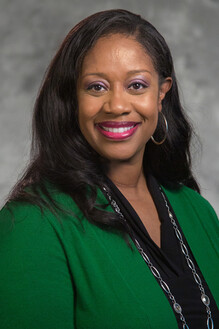 From the DukeHealth.org archives. Content may be out of date.
From the DukeHealth.org archives. Content may be out of date.
Don’t Delay Surgery: Precautions Are in Place to Ensure Your Safety

Delaying needed medical care because of concerns about COVID-19 can have long-term consequences on your health. If you need surgery, we want you to know about the safety measures Duke Health has instituted across our hospitals and clinics. Our top priority is to keep you and our team safe while minimizing the spread of the coronavirus.
“Each hospital or clinic can be a different environment with different people, but we are unified in how we make things safe no matter what Duke location you go to and what treatment you receive,” said Dr. Erica Taylor, MD, an orthopaedic surgeon and chief of surgery at Duke Raleigh Hospital.
If you have an upcoming surgery or need to schedule one, here’s what we’re doing to keep you and our team safe.
Safety Precautions in Place
Since the start of the COVID-19 pandemic, Duke has implemented precautions to protect patients, visitors, and employees at our hospitals, ambulatory centers, and clinics. These include:
- Enhanced cleaning using CDC-approved products
- Health screenings of patients, visitors, employees, and providers on entry to our facilities
- Requiring everyone to wear masks at all times
- Encouraging physical distancing in hallways and waiting areas
Will I Be Tested for COVID-19?
You will be tested for COVID-19 -- typically two to three days before your surgery. This allows enough time to process the test and get the results to you before your procedure. Testing can be done at one of our Duke Health drive-up testing locations, which are available throughout the Triangle. "We'll have you roll down your window a few inches, we'll swab, and [you will] get results about 24 hours later," said Ashlee Riddick, DNP, CRNA, a nurse anesthetist at Duke Regional Hospital. "It's a safe and easy way to make sure we can protect staff and patients.”
What Happens After Your COVID-19 Test
If you test negative for the coronavirus, your procedure will take place as planned. If you test positive, we’ll help you get the care you need, including safely rescheduling your surgical procedure. This will give you time to recover and for a follow-up test to come back negative.
If you test positive and your care team determines your surgery can’t be delayed, we have steps in place to protect you and our teams as we proceed with the operation. They include using designated operating rooms and patient care areas for your surgery and recovery. We’ll work with you to get you home as soon as it’s safe to do so.
How We’re Keeping Operating Rooms Safe
We’ve instituted several procedures to ensure your safety in our operating rooms.
All trash and disposable supplies are removed from each area before it is sanitized. During every cleaning, operating rooms undergo frequent air exchange to push out any airborne microbes, and all surfaces and equipment are thoroughly cleaned with CDC-approved products. If additional cleaning is required, a special UV light is used to disinfect the room.
To protect you and our teams, our doctors, nurses, and staff always wear protective equipment, including face masks.
Will Someone Know When I’m Out of Surgery?
Because we have enhanced visitor restrictions in place to minimize the spread of COVID-19, we'll use a messaging system to update your family or loved ones on your progress. We send real-time text messages that show when you're entering surgery, when the procedure has started, when surgery is complete, and when you’re transferred from the OR to recovery.
At the end of your surgery, your doctor will call your support person to provide an update.
Recovering in the Hospital
If you are required to stay with us as part of your recovery, you will rest in a sanitized, clean room, and your care team will wear protective equipment, including face masks. You won’t need to wear a face mask in your patient room, but it’s required in hallways and shared spaces.
Our visitor restrictions don't permit a loved one to be with you during an inpatient stay at our hospitals, with exceptions for some pediatric surgeries and other approved exemptions. Our ambulatory surgery centers are allowing one visitor per patient. If you would like to connect with friends or family, we’ll make sure you can communicate through phone calls or video chats on Zoom or FaceTime. You will be able to have a support person come meet you when it’s time for discharge.
If You’re Leaving the Hospital the Same Day
If you're scheduled to go home the same day of your outpatient surgery, you can have one visitor join you. They'll receive a health screening like all others entering our hospitals and clinics and will need to stay in a designated waiting room during your surgery.
Virtual Follow-Up Appointments from Home
To minimize your risk to COVID-19, after surgery your doctor may schedule virtual visits that can be held on your computer or mobile device. That way, you don’t need to return to a hospital or clinic immediately after your procedure and can recover from the comfort of your home.




